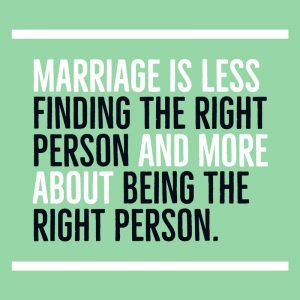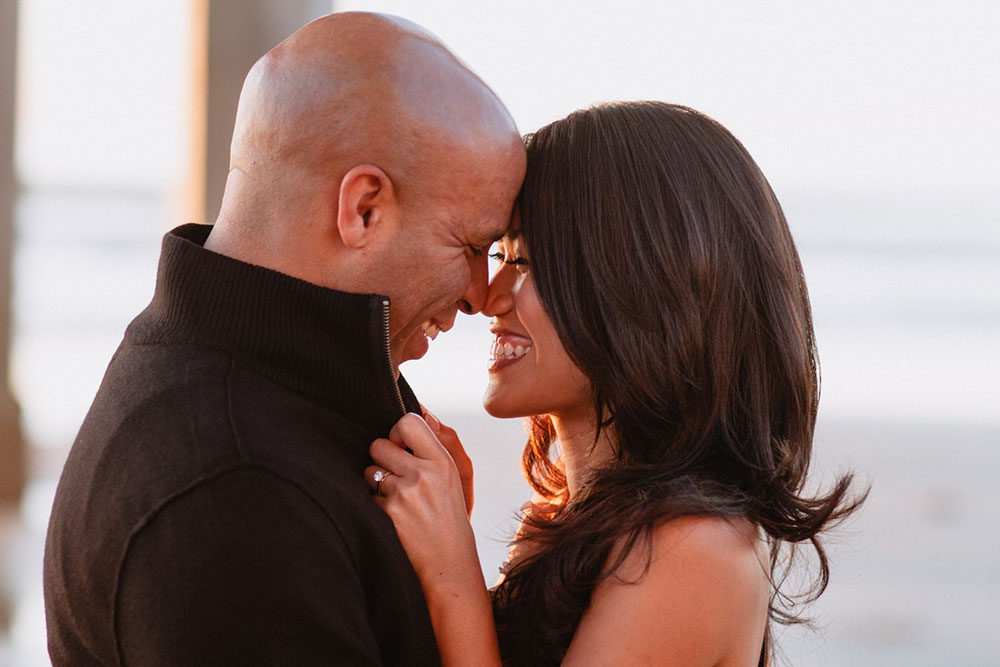Marriage seems so simple. A couple meets, falls deeply in love, gets married, and lives happily ever after. Right? That’s how it happens in the movies.
But if that’s true, why are so many people today not bothering to get married? And of those who do, nearly half end in divorce. Perhaps it’s not so simple after all.
Compatibility in Marriage
Many popular views of marriage focus on compatibility. Most dating services and websites have lengthy and complex questionnaires that cover people’s interests, beliefs, hobbies, and intellect. Often, these relationships start off great because they have so much in common. Which leads to happiness. Which leads to love.
 The only problem is that things in life change. And they change a lot.
The only problem is that things in life change. And they change a lot.
- Interests change.
- Financial circumstances change.
- Health changes.
- Couples have children, which changes things dramatically.
- The children then grow up and leave home, changing things again.
- Jobs change.
- Families change.
- People change.
The only thing constant in marriage is change. So when these couples who were once so very happily married find that they are falling out of love, what are they to do? What kind of help or counseling should they seek?
Common Interests
If compatibility is the basis for mutual happiness, a most common approach to help the marriage is to find something new to have in common—something they can do together. Finding a new hobby. Learning a new language. Taking up a new sport or pastime.
Children or grandchildren can sometimes fill this void. Until circumstances change, and you’re left with the same problem. Most of the solutions deal with modifying behavior. And while these approaches can be helpful in the short term, they’re still dependant on temporary compatibility.
Love is the emotional response to the cause of relative happiness. And that kind of love is fleeting.
The Outside-In Approach
 What if instead of an “outside in” approach to marriage, there were in “inside out” approach? What if genuine love is a cause and not an effect? A healthier view of marriage is to see it as a lifetime pursuit, rather than a one-and-done event.
What if instead of an “outside in” approach to marriage, there were in “inside out” approach? What if genuine love is a cause and not an effect? A healthier view of marriage is to see it as a lifetime pursuit, rather than a one-and-done event.
Compatibility is a wonderful start and can help us find the right person. But marriage should be seen as the start of a lifetime of building a relationship together that requires 100% commitment from both people.
A long-term marriage is more about being the right person, not finding the right person. Perhaps this is one explanation for why the survival rate for second and third marriages drop dramatically over that for first marriages.
Giving and Taking
The truth is that love is best defined as a “deliberate, intentional act of our will to give that which is in the best interest of another person.” If love is giving, then the opposite of love is taking. The opposite of love is selfishness.
Human beings are by nature selfish. Babies do not need to be taught to be selfish. Their first words are often “mine.” As we grow into adulthood, most relationships are quite symbiotic. We give in order to get. Once we stop getting what we desired from a relationship, our giving stops.
If a relationship, or a marriage, is to survive and thrive, both parties must learn how to love! That means learning how to give whatever they have, whether they get anything in return or not. It is through this difficult process of maturity that genuine love becomes the cause of our actions, not the result. That’s simple, but not easy.
The warm, fuzzy emotions that we once thought were love are now seen as the effects of the true, volitional love that comes from our hearts.
Finding Support
There’s a lot of marriage advice out there—from family, friends, books, and on social media. It’s hard to know what’s good or bad advice. That’s why a good counselor can be an invaluable help to navigate the storms of life.
Try to find marriage counseling that takes the “inside out” approach. This helps us to give love as an act of our will, not an emotion. Counseling that offers an “outside-in” approach focuses on feelings and compatibility that provides short-term fixes.
A few good places to start in finding help for your marriage are:
- Prepare Enrich
- Family Life
- Winshape Marriage
- The Association of Certified Biblical Counselors
- The Gottman Institute
No marriage is perfect, but the storms that come can either destroy or strengthen it depending on the level of commitment. If both people are committed, almost any marriage can survive. With the right help and resources, it can also thrive.





